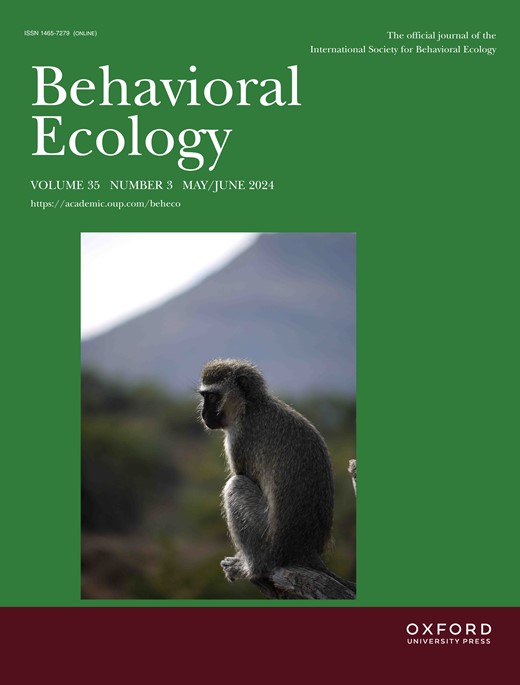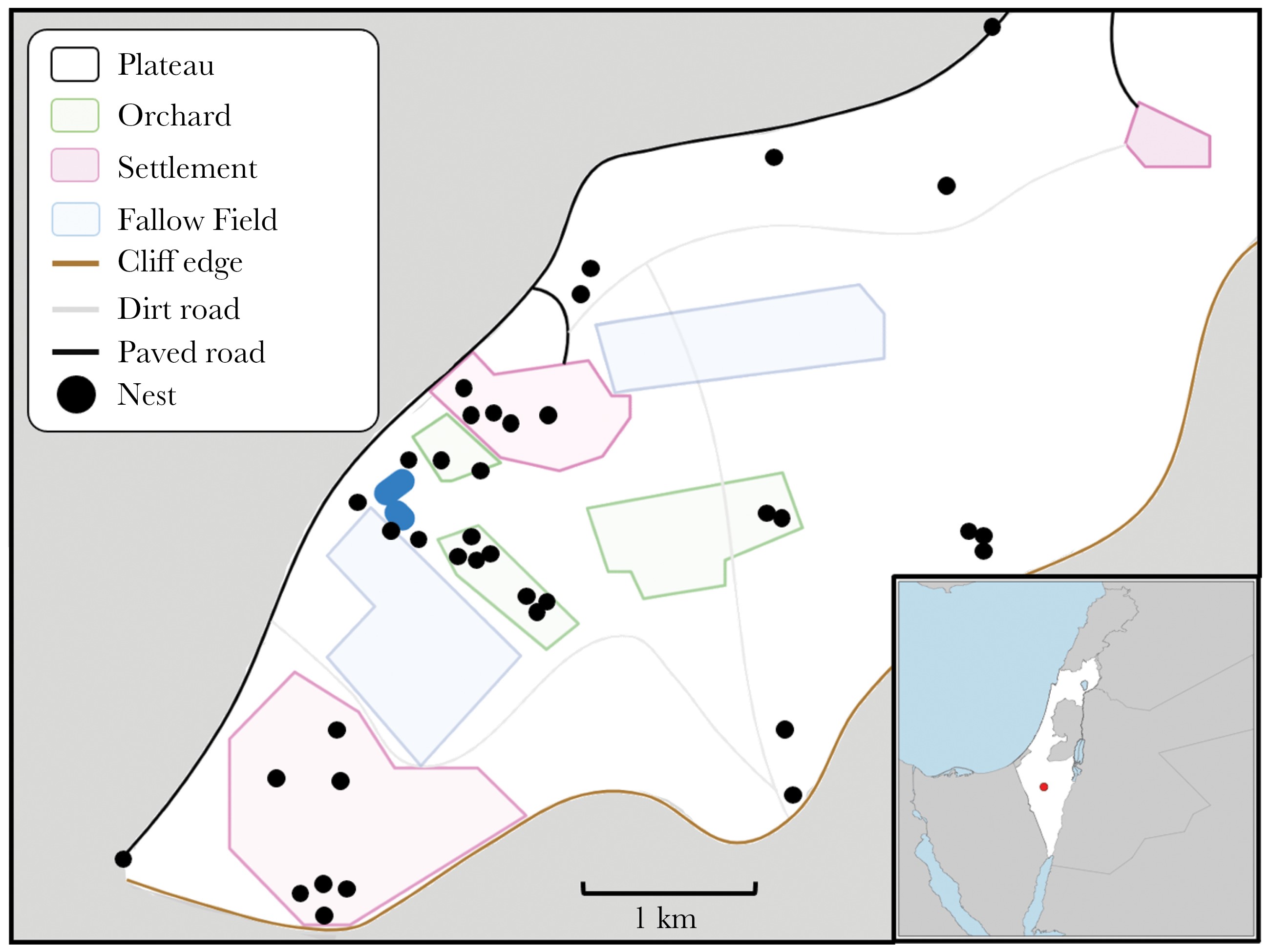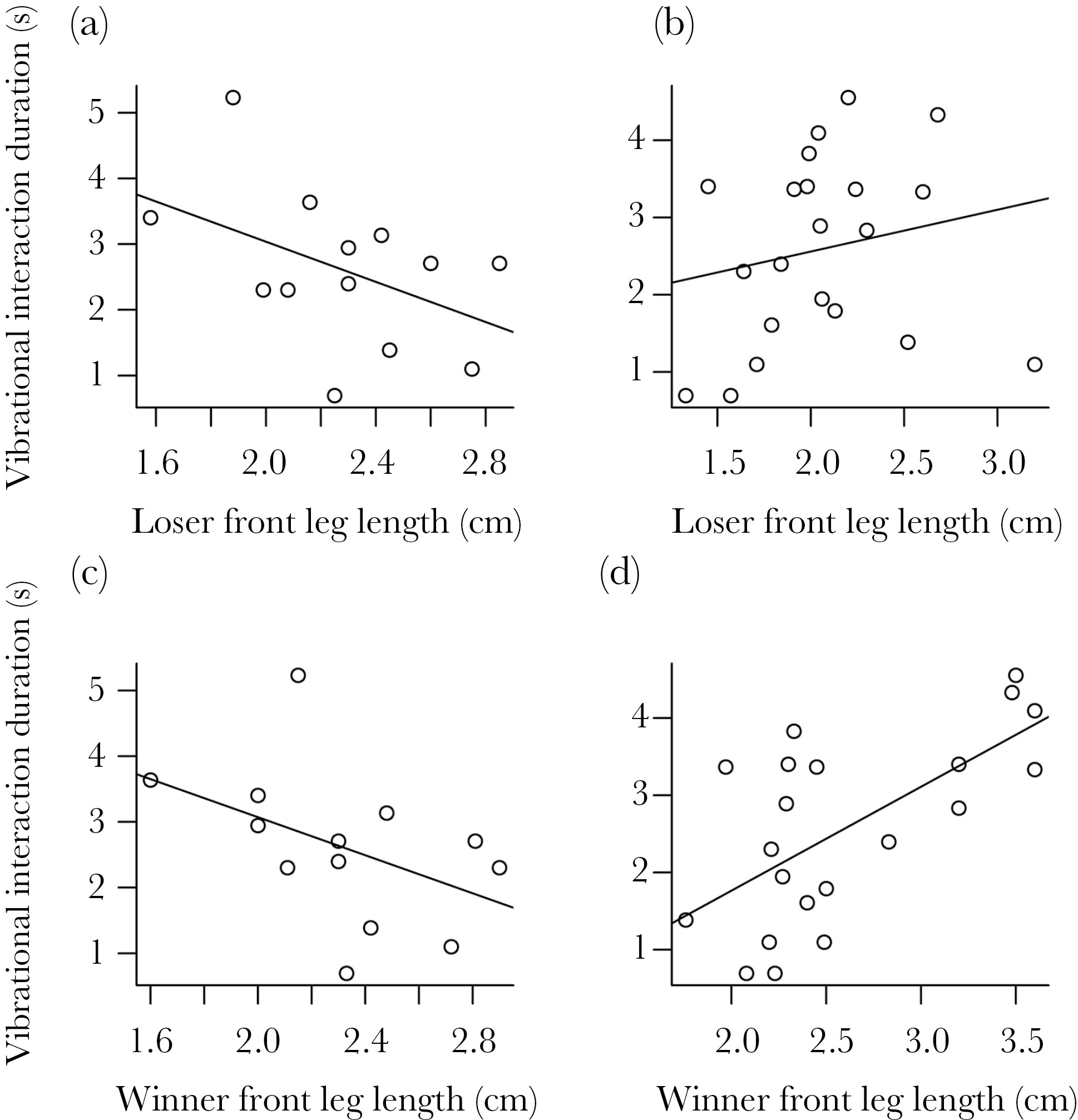Opposite-sex associations are linked with annual fitness, but sociality is stable over lifetime
Editor-in-Chief
Louise Barrett
Impact Factor
2.4
5 year Impact Factor
2.6
Zoology
25 out of 176
Why Publish with Behavioral Ecology
Learn more about the journal and discover the many reasons why you should join Behavioral Ecology’s author community.

Virtual Issue: Focus on Integrating Mechanism and Function
Read the latest Behavioral Ecology Virtual Issue on Focus on Integrating Mechanism and Function.
Explore the Virtual Issue archive.

High-Impact Research Collection
Explore the most read, most cited, and most discussed articles published in Behavioral Ecology in recent years and discover what has caught the interest of your peers.
Email alerts
Register to receive table of contents email alerts as soon as new issues of Behavioral Ecology are published online.

About ISBE
Find out more about the International Society for Behavioral Ecology.

Editorial Office
Contact the Editorial Office if you have any queries relating to Behavioral Ecology.

Become an ISBE Member
Discover the benefits of becoming a member of the International Society for Behavioral Ecology.

Connect on social media
Stay up to date with the latest news and content from the International Society for Behavioral Ecology on Facebook and follow the official Twitter account of Behavioral Ecology.

Developing countries initiative
Your institution could be eligible to free or deeply discounted online access to Behavioral Ecology through the Oxford Developing Countries Initiative.
Find out more

Committee on Publication Ethics (COPE)
This journal is a member of and subscribes to the principles of the Committee on Publication Ethics (COPE)publicationethics.org

Read and Publish deals
Authors interested in publishing in Behavioral Ecology may be able to publish their paper Open Access using funds available through their institution’s agreement with OUP.
Find out if your institution is participating

Recommend to your library
Fill out our simple online form to recommend Behavioral Ecology to your library.
Recommend now



 For desert specialists, urban expansion of settlements and agriculture in their desert habitat initially may seem to provide an oasis of resources in an otherwise stark environment, but looks can be deceiving. Using direct observations of nests in a mosaic of habitat types, we show that nesting in villages provides no benefits to breeding success in a cooperative desert-specialist bird, despite the apparent increase in available resources.
For desert specialists, urban expansion of settlements and agriculture in their desert habitat initially may seem to provide an oasis of resources in an otherwise stark environment, but looks can be deceiving. Using direct observations of nests in a mosaic of habitat types, we show that nesting in villages provides no benefits to breeding success in a cooperative desert-specialist bird, despite the apparent increase in available resources.
 During a contest, rivals may decide to keep fighting or run away. To reach a decision, each rival may use its own fighting capacity or compare its strength with its rival. We investigated fights between males of an orb-web spider to show that the decision to withdraw in the initial contest phase depends mostly on the opponent fighting capacity, indicating that rivals may use one between two unusual fighting strategies.
During a contest, rivals may decide to keep fighting or run away. To reach a decision, each rival may use its own fighting capacity or compare its strength with its rival. We investigated fights between males of an orb-web spider to show that the decision to withdraw in the initial contest phase depends mostly on the opponent fighting capacity, indicating that rivals may use one between two unusual fighting strategies.
 Some cognitive abilities are suggested to be the result of a complex social life, allowing individuals to achieve higher fitness through advanced strategies. However, most evidence is correlative. Here, we provide an experimental investigation of how group size and composition affect brain and ...
Some cognitive abilities are suggested to be the result of a complex social life, allowing individuals to achieve higher fitness through advanced strategies. However, most evidence is correlative. Here, we provide an experimental investigation of how group size and composition affect brain and ...




